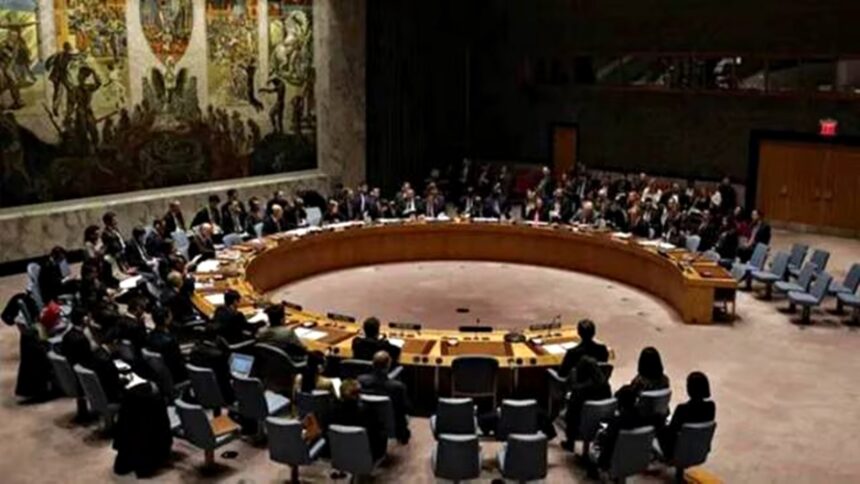Pakistan’s appointment to key counter-terrorism bodies at the United Nations Security Council (UNSC) — chair of the sanctions committee against Taliban, vice-chair of counter-terrorism panel formed after 9/11, and a working group on the UN sanctions regime — has left many red faces in New Delhi.
According to sources, there is a “sense of disquiet” and “unease” in South Block, since this goes contrary to India’s efforts to portray Pakistan as the epicentre of terrorism — just over a month after the Pahalgam terror attack on April 22, which was followed by Operation Sindoor that led to four days of military confrontation between India and Pakistan.
Last month, India sent multi-party delegations to various foreign capitals, including all current and upcoming members of the UNSC, in an attempt to rally support for its war against terror emanating from Pakistan.
Sources said Pakistan was appointed to these key panels on May 29, but the matter was made public in the last couple of days, while the Indian teams were touring these countries. An Indian delegation led by Congress MP visited New York last month, and is again in Washington for engagements with the US Congress, think tanks and media.
Appointment to these panels must have the concurrence of both permanent and non-permanent members of the UNSC. The development signals that Pakistan has been able to get its way, with the help of China and other members of the UNSC.
Significantly, a high-level Pakistani parliamentary delegation, led by Senate Chairman and former Pakistan PM Yousuf Raza Gilani, concluded a visit to the UN headquarters in New York earlier this week. The delegation held a series of meetings with senior UN officials and diplomats from various member states.
Pakistan has also sent a high-level multi-party political delegation to New York, Washington DC, London, Brussels and Moscow, led by its former foreign minister , to canvas for support in its favour.
Islamabad will now chair the UNSC committee established under Resolution 1988 (2011), which oversees the implementation of sanctions against the Taliban. It has also been named vice chair of the Counter-Terrorism Committee (CTC), which monitors implementation of Resolution 1373 (2001), a core component of the UN’s global counter-terrorism architecture.
Additionally, Pakistan will serve as co-chair of two important subsidiary bodies: the Informal Working Group on Documentation and the newly formed Working Group on Sanctions. The documentation group works to enhance the UNSC’s transparency, efficiency and inclusiveness, while the sanctions group is tasked with evaluating and improving the structure and effectiveness of the UN’s sanctions regimes.
With Pakistan’s appointment to these key UNSC counter-terror panels, sources said there is a “real risk” of Islamabad trying to project India as a source of terrorism, especially in Balochistan. The counter-terror committee could ask for reports on terrorist activities in Balochistan.
While this is concern for , sources said Algeria is the chair of the committee, while France and Russia are also vice-chairs with Pakistan. “So we have some checks, through our friends and strategic partners, trying to keep Pakistan’s moves in check,” said sources.
India has friends on the Taliban sanctions committee, too, where Guyana and Russia are vice-chairs. The working group on sanctions has Greece as a co-chair. This is important since India has been trying to get a number of Pakistan-based terrorists sanctioned, while Beijing and Islamabad have been blocking such moves.
New Delhi is hoping that these co-chairs and vice-chairs will act as a counter-balance and counter-weight to keep Pakistan’s anti-India propaganda moves in check.
Sources said the most important counter-terrorism committee, under UNSC Resolution 1267, is, however, led by Denmark as chair and Russia and Sierra Leone as co-chairs. Earlier, India chaired the UNSC 1267 ISIL and Al-Qaeda Sanctions Committee in 2022, responsible for monitoring and implementing sanctions against individuals and entities associated with the two outfits.








